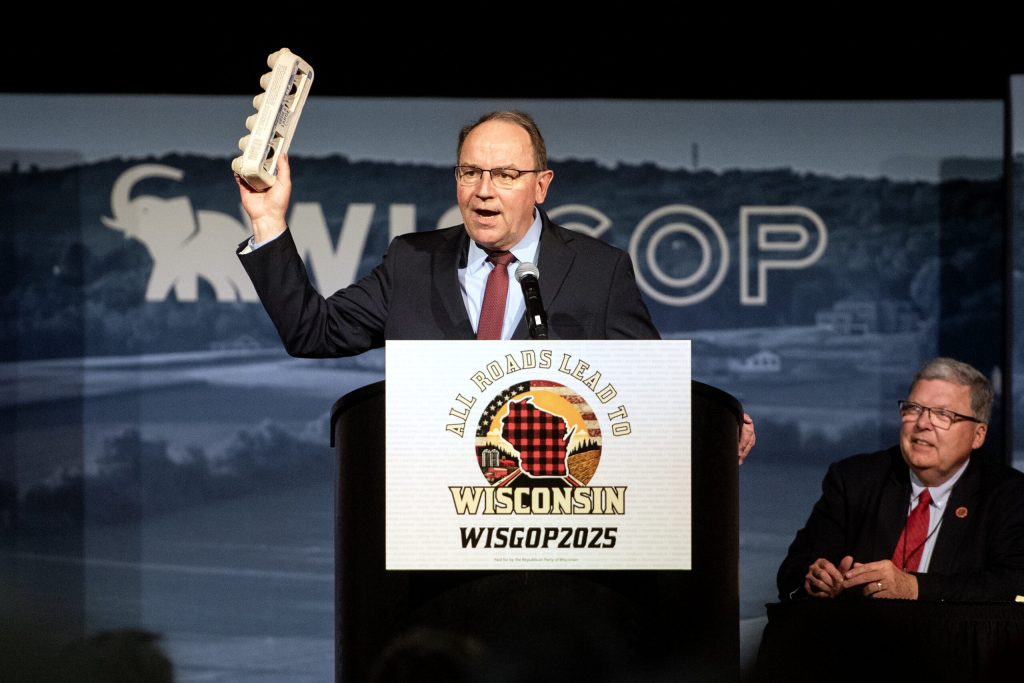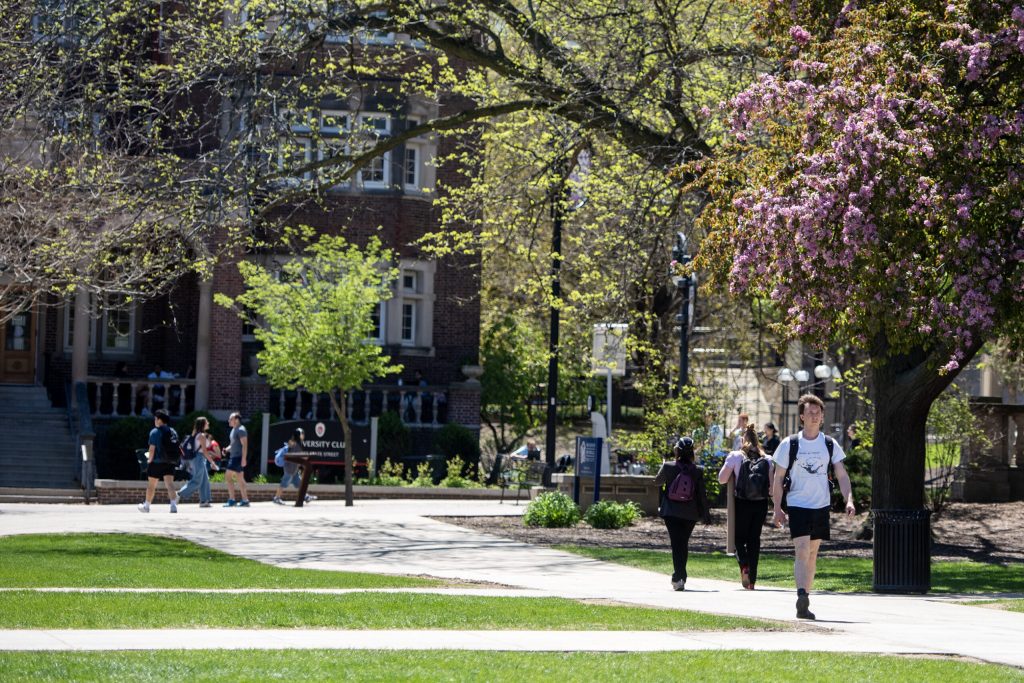US Rep. Tom Tiffany’s Bill Targets University Faculty From Abroad
Bill would make hirings harder to do. UW system employs nearly 500 visa holders.
A proposal from a Republican Wisconsin congressman would make it harder for universities to use a work visa program to hire faculty and staff from other countries, while limiting private businesses’ ability to recruit high-demand workers from abroad.
U.S. Rep. Tom Tiffany, R-Hazelhurst, introduced the Colleges for the American People Act, or CAP Act. It would remove an exemption to the H-1B visa program that allows colleges and universities to use the program without counting toward the cap on the number of visas issued by the federal government for international workers at private businesses.
The bill would make prospective higher education employees go through the H-1B visa application process and compete with applicants in other industries. Tiffany’s office said the bill would not affect current visa holders, and extensions for H-1B employees already at universities wouldn’t count against the cap in the future.
“For example, if you have a degree in English literature and you want to do a job, that’s not a specialty occupation — unless you’re going to be an English professor,” he said. “It has to be a computer science degree for a computer engineering position or a medical degree for a physician, that kind of thing.”
The H-1B visa has a cap of 65,000 visas each fiscal year for jobs in the private sector, with another 20,000 for individuals with a U.S. master’s degree or higher, for a total of 85,000 visas annually. H-1B workers employed at colleges and universities and certain research organizations are not subject to the cap.
Tiffany told WPR that the bill is aimed at encouraging universities to educate young people to fill their in-demand jobs instead of “going to people from outside the country.”
“The universities should compete, just like private employers, to be able to bring those people in,” Tiffany said. “The thing I’ve heard is that they’re saying, ‘We sometimes don’t have people that are qualified to be able to do these jobs.’ To me, that’s an indictment of the higher education system.”

U.S. Rep. Tom Tiffany holds an egg carton as he begins his speech Saturday, May 17, 2025, during the Republican Party of Wisconsin State Convention in Rothschild, Wis. Angela Major/WPR
The Universities of Wisconsin system employs nearly 500 H-1B visa holders, with salaries totaling almost $43 million annually, according to a spreadsheet the system provided to a conservative media outlet. Individual salaries for those workers ranged from $40,000 to more than $100,000 per year. Some of the job titles were redacted, but many of those visas were held by professors, researchers and scientists.
“Critically, these workers help us develop additional talent in Wisconsin at our universities,” he said.
Jon Shelton, a professor at UW-Green Bay and president of the American Federation of Teachers-Wisconsin, said the exemption allows American universities to recruit the best and brightest regardless of their home country.
“You need to be able to hire that person who best fits the needs of the academic requirements that a department might be looking for, whether that’s somebody doing research to cure cancer or understand supply chains in the business sector,” he said. “It’s important for us in the UW system to be able to bring in people who are the best fit for the job, and that should include folks from other parts of the world.”
He also said H-1B visa holders aren’t just at UW-Madison or UW-Milwaukee, and they might make up a higher percentage of faculty at smaller four-year schools in the system.
“We have a number of folks at our (UW-Green Bay) campus who I know are on H-1B visas, and many of them are some of our most productive scholars,” Shelton said.
The H-1B visa program is also broadly popular among Wisconsin’s business community. A recent survey of 153 employers from Wisconsin Manufacturers & Commerce, the state’s largest business lobbyist, showed 96 percent of respondents support significantly increasing the annual quotas for employment-based immigrant visas, like H-1B.
And 99 percent of respondents also supported creating new visa options for high-demand workers.
“We have a lot of foreign students that are getting degrees in critical areas such as engineering, such as AI, and they would like to apply those skills in the United States, and we don’t give them a visa because we arbitrarily cap H-1B visas at 85,000 per year,” he said at the time.
Sovern said there’s a lottery for H-1B visas and about 300,000 employers are all vying for the 85,000 available slots.
He said making universities compete with businesses for those visas would make it even harder for employers looking for talented workers. He called Tiffany’s bill “counterproductive.”
“It doesn’t seem like the kind of thing that is going to move the dial in a positive direction at all,” he said. “I find it interesting that someone who wants to support businesses is saying, ‘We want the government to control the 1 percent of people who you want to hire for this job.’”
US Rep. Tom Tiffany’s bill would make it harder for universities to hire faculty from abroad was originally published by Wisconsin Public Radio.
If you think stories like this are important, become a member of Urban Milwaukee and help support real, independent journalism. Plus you get some cool added benefits.






















